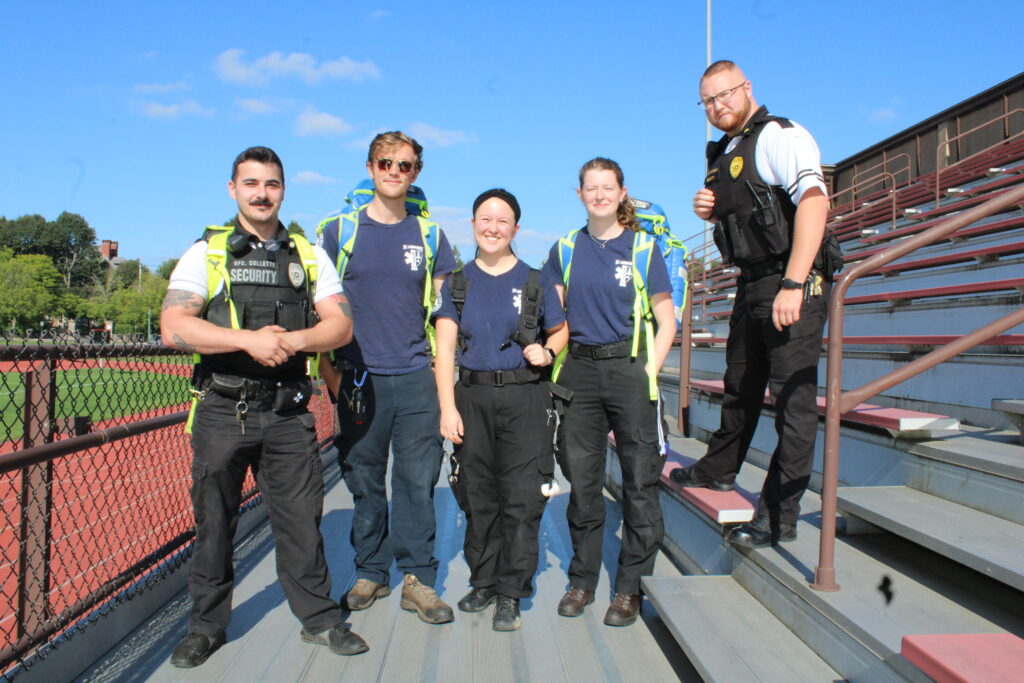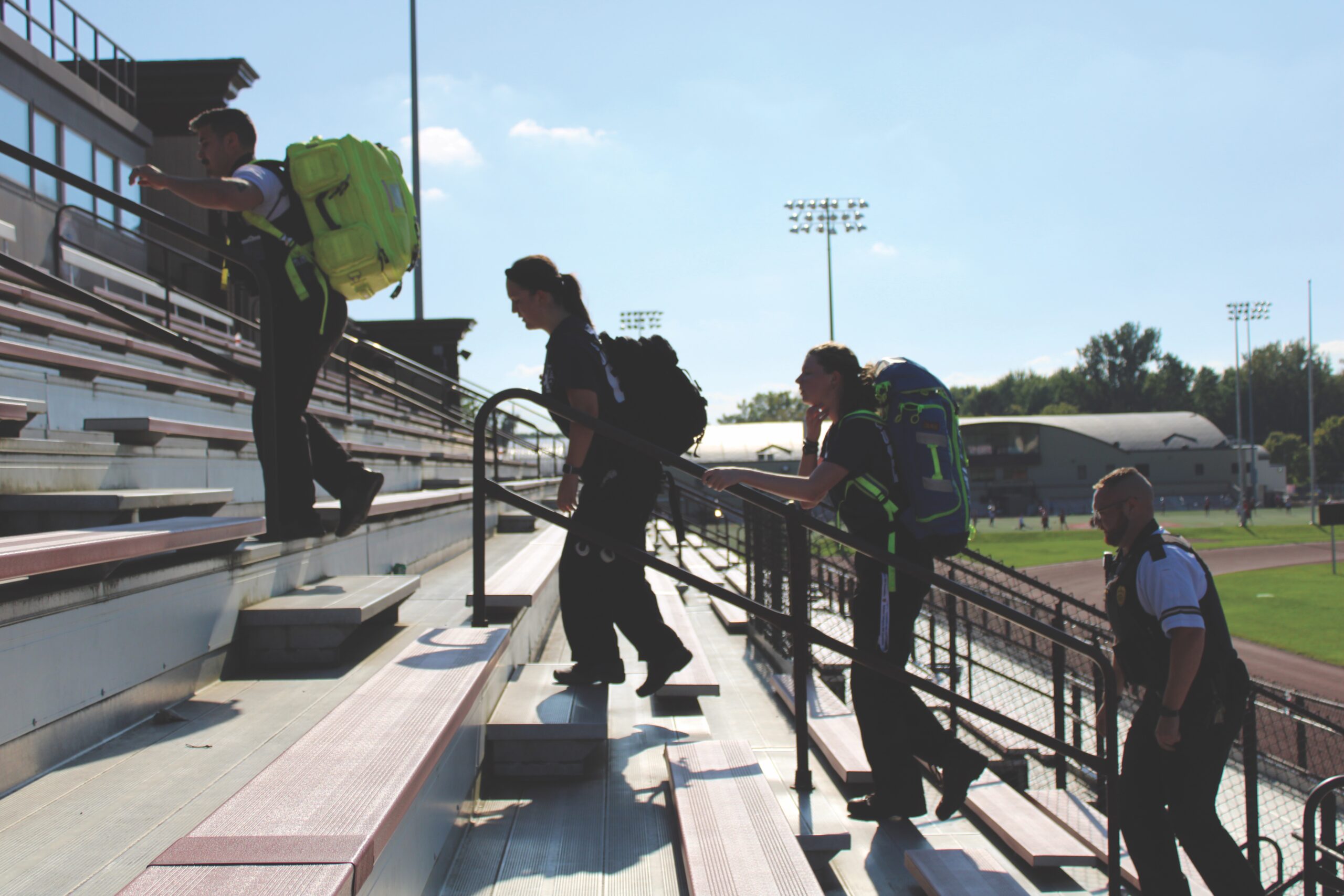Steps Toward Remembrance
EMS & Security Take Steps to Honor 9/11 First Responders
Employees of St. Lawrence University’s Safety and Security Department and student members of SLU Emergency Medical Services met Monday to ascend the stairs of Leckonby Stadium at least 47 times, symbolizing the number of steps that some first responders took climbing 110 flights of stairs at the World Trade Center on Sept. 11, 2001.
That day, 22 years ago, the United States fell victim to a series of terrorist attacks and saw the loss of approximately 2,977 lives, including an estimated 343 firefighters, 72 law enforcement officers, eight EMS personnel and five Laurentians.
The 9/11 attacks were carried out by 19 members of the terrorist group al-Qaeda, who hijacked four commercial passenger planes. The first two struck the North and South towers of the World Trade Center in New York City, New York. A third plane hit the Pentagon in Arlington, Virginia, where the U.S. military is headquartered. The fourth plane, speculated to be targeting the White House, crashed into a field in Stonycreek Township, Pennsylvania, following an effort by passengers to retake control of the aircraft.
Now, over two decades later, some of SLU’s very own first responders spent an afternoon honoring the lives of those lost. On Sept. 11, 2023, at 4 p.m., two officers and four student emergency medical technicians met at Leckonby Stadium to simulate climbing the 110 flights of stairs that some first responders scaled that day.
Assistant director of SLU EMS Jackson Howes ’24 was one of four students making the climb. The average college student age in 2023 is 22.4 years old, meaning most students would not have been alive when the attacks occurred. “A lot of our students, if they weren’t born yet, they would have had family, or friends, or family friends affected,” Howes said. “It’s changed all of our lives, whether we know about it or not; 9/11 was a pivotal moment in every single person’s life,” added Howes.
The aftermath of 9/11 changed the landscape of American life, domestic politics and international relations. Howes clarified that this event was not about the overarching geo-political issues. “It’s about the first responders that walked into it [the World Trade Center], knowing that they were in danger, knowing that they may not see their families again so that others might live,” said Howes.
SLU Safety and Security Sgt. Blake Sharlow and Officer JR Collette co-organized the event. Collette, who also advises SLU EMS, echoed Howes’s sentiment. “I think it’s really good for us to remember the sacrifices of the people that went there, ignoring all the political aspects of it, just [remembering] the people that actually responded to try and help people,” Collette said. “A lot of them made the ultimate sacrifice that day, and we’re here to try and capture at least some of the suffering by climbing up and down the stairs,” added Collette.
Student director of SLU EMS Evelyn Bibbons ’24 recognizes that in her role as an EMT, she may have to respond to situations like 9/11. “It’s a reminder that these kinds of things do happen, and it’s our responsibility to recognize this could happen to any of us in the future.”

The group collectively amassed 16,616 steps, completing the climb in just under one hour. Howes led the pack, completing the ascent 80 times, individually climbing 4960 steps. “I could not be more proud of the SLU EMS team,” wrote Collette in a follow-up email.
Collette also wanted to use the event to “bring attention to the statistics” that suggest as many first responders have died from 9/11-related long-term illness as those who perished the day of the attacks. An additional 341 New York Fire Department members have died from illnesses caused by toxic dust at Ground Zero, according to the Uniformed Firefighters Association, nearly equaling the 343 firefighters who died on Sept. 11, 2001. The New York City Police Department also reported that 323 officers have died of 9/11-related illness since 2001.
In 2019, Congress voted to secure funding for the 9/11 Victims Compensation Fund, providing survivors with financial assistance. However, Collette believes more can be done. “Their care is still a concern and something that, unfortunately, we have to continue fighting for in the capitol.”
While 22 years have passed since 9/11, Laurentians — some of whom were yet to be born — feel the obligation to honor those who gave their lives that day. The 9/11 terrorist attacks may not have directly affected everyone on campus, but events like this allow SLUdents to reflect on how 9/11 shaped their lives. First responders, like SLU EMS, play prominent roles in campus life and student safety. Recognizing their daily acts strengthens our close-knit community even more.



